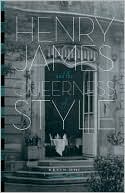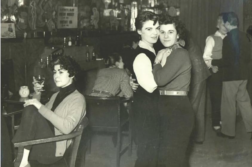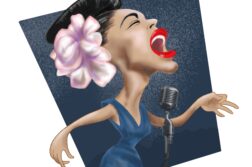 Henry James and the Queerness of Style
Henry James and the Queerness of Style
by Kevin Ohi
Univ. of Minnesota Press,
228 pages, $25.
NEAR THE END of this brilliant study, Kevin Ohi draws a comparison that is surprisingly down-to-earth in a book that expresses complex ideas in the highly technical language of contemporary literary criticism and queer studies. He compares what he calls the “discontinuities of consciousness” in The Ambassadors to the gay experience of the closet. Suddenly, many pages about “temporality,” “belatedness,” and “potentiality” make sense. By bringing up the closet, Ohi is not referring to repressed sexuality in Henry James or his character Lambert Strether. Rather, he is trying to make vivid his belief that consciousness in late James is a matter of before and after, of moments of belated realization about the past that are illuminating. Nothing embodies this idea better than coming out, the moment when a gay person recovers the future potentiality of his or her life that would otherwise have been lost to the closeted self of the past. Ohi calls belated realization “queer,” not because it is about gay life, but because it disrupts received forms of meaning and identity. This is what he means by “queerness” in the style of Henry James.
Ohi restricts his study to texts that James wrote between 1900 and 1916: The Golden Bowl, The Wings of the Dove, The Ambassadors, his autobiography, and several essays. Many people find these works unreadable, primarily because of their prose style. Ohi does not manage to make James’ late style more readable—indeed he acknowledges it is impossible to know what some passages mean—but he does make it more intelligible. Quoting the French critic Gilles Deleuze, Ohi defines style as the “becoming of language”—a process rather than an achieved state. By 1900, James had written so much that it’s no surprise his language had become, in Ohi’s words, “dauntingly opaque, inverted, luxuriantly overstuffed.” Bravely, Ohi subjects passages from the late works to close readings. The famous opening sentence of The Wings of the Dove—“She waited, Kate Croy, for her father to come in, but he kept her unconscionably, and there were moments at which she showed herself, in the glass over the mantel, a face positively pale with the irritation that had brought her to the point of going away without sight of him.”—receives such thorough analysis that the meaning of the entire novel seems to emerge from the first ten words. Of course, that still leaves the thousands of other words in the text, but Ohi makes a convincing case that James was writing deliberately, not just rambling as he dictated to a typist.
Ohi’s book serves James well in a number of ways. Although not the focus of his study, he repeatedly notes that James was comfortable with sexuality, including his own same-sex attraction. It is the early James scholars and biographers who now appear reticent and embarrassed by sexuality. Ohi upends the many studies that find in James’ themes of renunciation and the sad failure to live life, and he enlarges our understanding of James’ narrative technique far beyond the “center of consciousness” that critic Percy Lubbock identified ninety years ago. Ohi is ambivalent about recent novelizations of James’ life, including Colm Tóibín’s The Master (2004), because even though they are sympathetic to the author’s sexuality, they’re simplistic in the connection they make between life and art.
Ohi’s chapters on The Golden Bowl and the Wings of the Dove comprise the heart of his study. He identifies in each a dominant literary trope and expands his analysis of that trope to include the entire novel. In The Golden Bowl, the trope is zeugma, or “double governance,” in which a single word refers to two or more words in a sentence even though it properly applies to only one. An example is the description of Fanny Assingham as “wrapped in her thoughts still more closely than in the lemon-coloured mantle that protected her bare shoulders.” The effect is disorienting to the reader, an instance of queer style, and this, according to Ohi, was the author’s intention throughout the novel. This type of close analysis of prose requires more attention to figurative language and syntax than some readers may favor, but it can yield a new appreciation for James’ late works. Similarly, The Wings of the Dove is dominated by apposition, a syntactical structure, seen in the opening words, that delays the resolution of meaning.
Ohi repeatedly states that his reading of Henry James is anti-psychological and anti-mimetic, a daring stance to take about a writer famous for being a psychological realist. This approach may appeal to scholars, but most general readers try to make psychological sense of characters in novels. They’re intrigued by the manipulative marriages in The Golden Bowl, the betrayals in The Wings of the Dove, the loneliness of Lambert Strether. Ohi comes closest to addressing this psychological dimension in his chapter on The Ambassadors, the most readable of the late novels. Through careful attention to the disjunctions time can work on consciousness, he demonstrates that at the end of the novel the situation of Strether, a character many gay readers find deeply moving, is one not of renunciation but of joy. Whether this is read as an aspect of novelistic theory or the story of a man’s life, it is a profound coming out to a new potentiality in the late work of Henry James.
Daniel Burr teaches in the medical humanities program at the University of Cincinnati College of Medicine.
[/groups_member]




